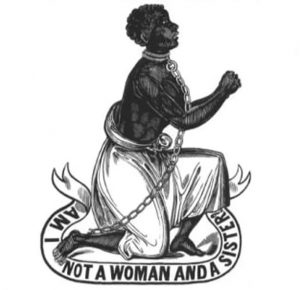I learned in history class that enslaved persons had no right to appear in court. It turns out that was not always the case. While they generally could not testify, people held in bondage could sue. A new archive of federal court cases in the District of Columbia includes several petitions from people demanding freedom from slavery. Some of them won. As we witness the passing of Supreme Court Justice Antonin Scalia this last week, I’m reminded of the important role our courts have played in setting our minds on freedom. No matter how friendly or hostile the social climate or the legal standards of the day, we’ve always looked to courts for justice. To be sure, it’s not always been found, but it’s been possible.
So even in the context of chattel slavery, where humans were literally treated in the law like beasts, it’s not all that surprising that people in bondage would sometimes seek freedom through the courts. Here is a small sampling of their stories:
- In 1806, Ben filed suit in the U.S. Court for the District of Columbia, claiming that the man who held him, Sabret Scott, had violated Maryland law in bringing him to DC. He won at trial but was later kidnapped by Scott and imprisoned by local marshals until the U.S. Supreme Court ordered a new trial in 1810.
- Dennis Wright sued his former owner’s widow in 1822, also claiming that he’d been brought to DC illegally two decades earlier. The case was settled out of court with Wright’s agreement to serve a six-year period of indentured servitude.
- In 1823, Fannie Tarlton sued Cartwright Tippett, who had purchased the rights to her person and that of her children some years earlier. She claimed that under Maryland law, she should have been freed from slavery in 1813 upon her return from Venezuela with a former owner. The court denied her petition because that prior owner had been on a secret mission to Venezuela, ordered directly by U.S. President James Madison, and thus had a form of diplomatic status that maintained his residence in the District.
There are many other cases. All of these stories — with their handwritten pleadings — are worth reading in full. One could rightly conclude from reviewing these cases that the courts had an opportunity to avoid the Civil War. Certainly the spirit of the Constitution, if not the letter, rendered illegal the holding of innocent people in bondage. The 13th and 14th Amendments should not have been necessary; they should not have required ratification by occupied southern governments.
A responsible judiciary would have ended slavery long before the southern states seceded. Had the courts done so in a timely fashion, the Confederacy may never have gained the strength to oppose the federal government, and any rebellion might have been put down promptly. Perhaps I’m being fanciful, too hopeful more than 150 years after the fact. Hindsight is 20/20. And after all, it was during this period that President Andrew Jackson flat-out refused to obey a Supreme Court order on Cherokee land rights: “[Chief Justice] John Marshall has made his decision; now let him enforce it!” Would a U.S. president of that era have obeyed an order outlawing slavery? Well never know. But the lesson in these cases for me is that judicial pussyfooting on issues of basic freedom can too easily lead to war or other chaos. May the errors of our 19th century courts never be repeated.



